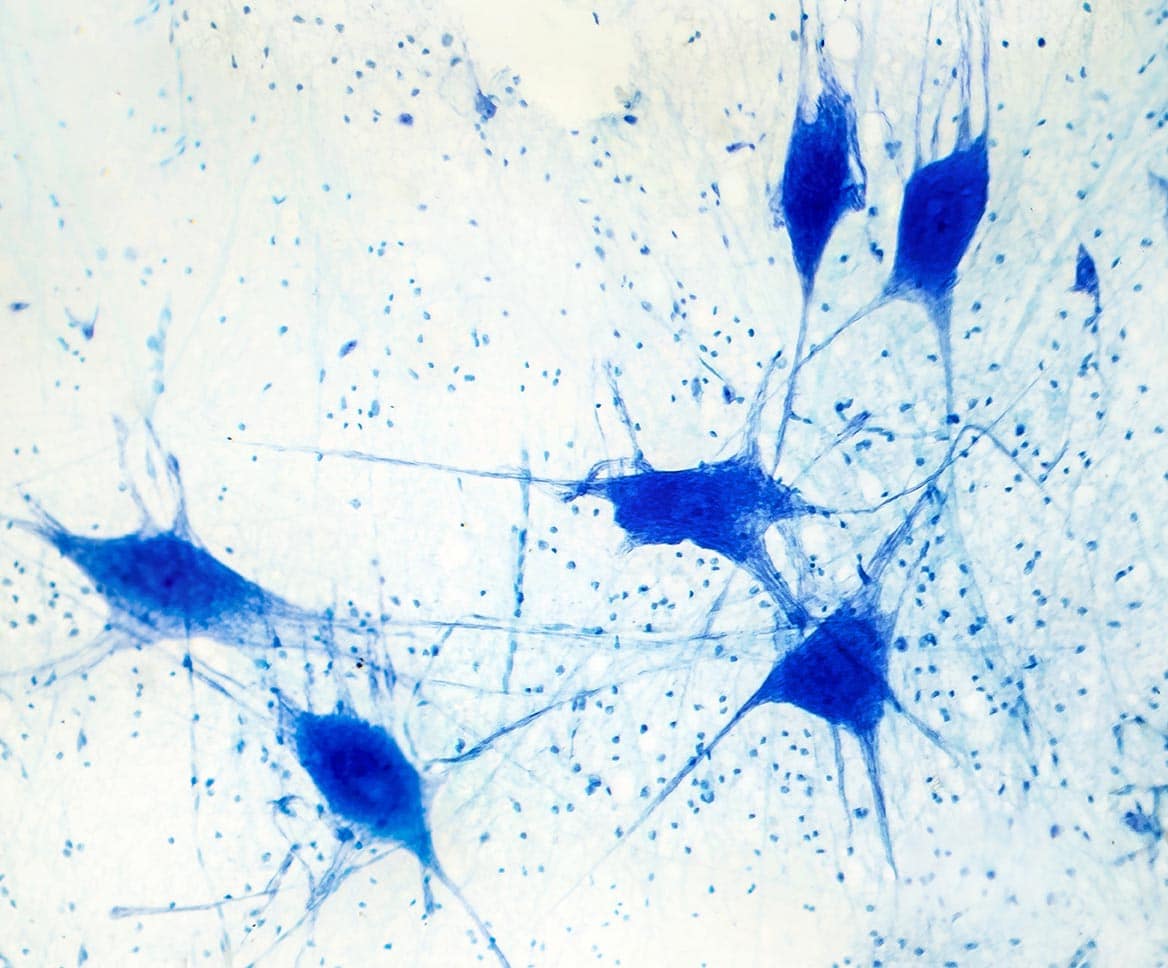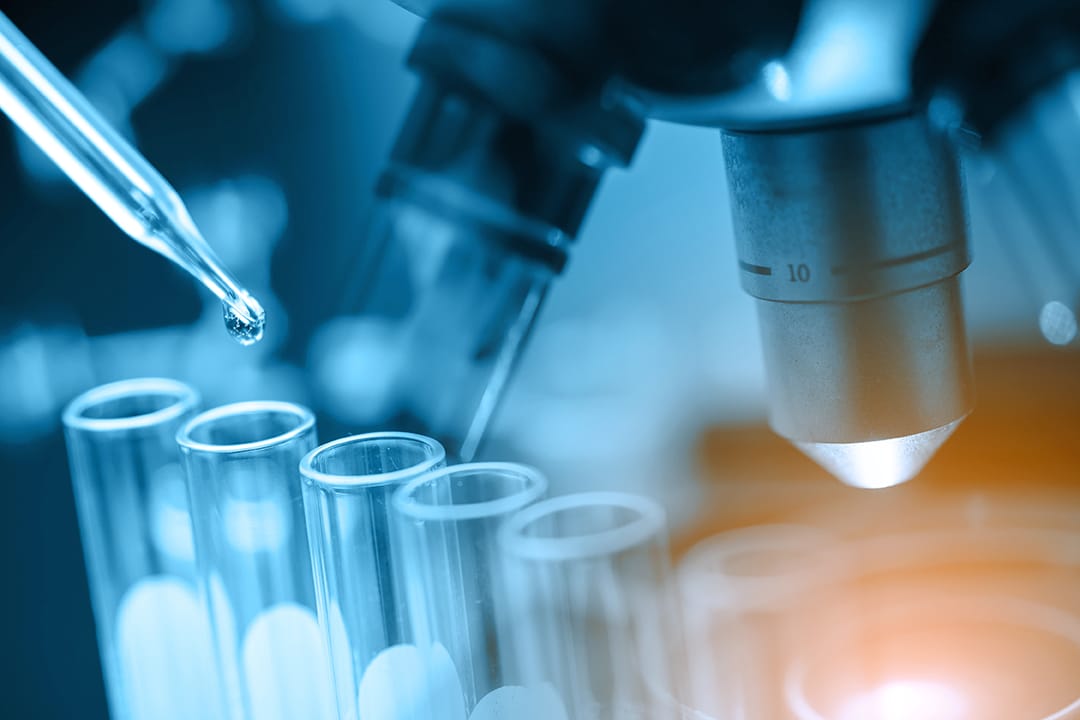21 June is Global MND Awareness Day, a day to raise worldwide awareness of MND (Motor Neuron Disease) and to stand in solidarity with the MND/ALS community.
In December 2022, LifeArc officially launched its Motor Neurone Disease Translational Challenge (MND TC), a multi-million-pound programme designed to accelerate scientific progress and innovation for people living with MND.
In people with MND, messages from the motor neurones (nerves in the brain and spinal cord) gradually stop reaching the muscles. It is a rapidly progressing neurological disease, the severity of which only increases over time. This results in the muscles weakening and wasting away, subsequently affecting how people move, speak, eat, and even breathe.
It is believed that:
- 333,000 people around the world are living with MND
- 6 people are diagnosed with the disease every day
- 6 people die from the disease every day
- 1 in 3 people die within a year of diagnosis
- 1 in 2 people die within two years of diagnosis
LifeArc’s goal is to make MND treatable by 2030, an important step towards ultimately finding a cure. Through the MND Translational Challenge we have partnered with an international coalition of experts, including academics, charities, healthcare professionals, patients, and industry, to develop scientific discoveries into clinical solutions that will transform how MND is detected and treated.
EXPERTS-ALS
The MND Translational Challenge has a broad scope with regards to its activities, and the latest example of LifeArc’s investment and focus is the EXPErimental Medicine Route To Success programme, known otherwise as EXPERTS-ALS. We are providing both scientific and financial support to this ground-breaking initiative; a programme designed to enable researchers to screen potential drugs more rapidly in people living with MND. This would, as a result, move these drugs into clinical trials faster and would represent a huge step forward.
Potential drugs for MND must be tested in phase 3 clinical trials to check if they will bring tangible benefits to people living with MND. These trials, however, are time-consuming and costly with low success rates – partly because the drugs being tested are chosen based on laboratory data rather than use on people living with MND.
The EXPERTS-ALS programme will overcome these limitations by screening drugs in patients and looking for early signals of benefit in blood tests. This results in faster decision-making over whether to proceed with a specific drug, usually within a few months, and leads to successful drugs being prioritised for testing in phase 3 trials with high chances of a positive outcome.
Additional ventures under the MND TC
Aside from EXPERTS-ALS, LifeArc has used the MND Translational Challenge to fund a research collaboration with Precision Life, a biotech company that supports target validation and drug discovery projects by using data analysis to identify promising drug targets and opportunities. This would, as a result, repurpose existing medicines for people living with MND.
The MND Data Workshop held on 9th June was also organised by LifeArc, in partnership with Health Data Research UK and Dementias Platform UK, in order to understand current data resources and assets available in the treatment of MND.
Also coming at the end of June will be the soft launch of our MND Ambassador Insight Group at an MND Association event in Daventry. This group will be key in involving people living with MND in decisions about their care and treatment, and they will be in attendance on the day.
The lead up to the launch of the MND Translational Challenge was comprehensive and methodical to ensure that LifeArc could have the largest impact possible. This included meetings with key experts in the academic, charitable, and pharmaceutical sectors to discuss how new drugs, diagnostics, devices, and digital solutions can be developed to transform MND care.
Even before the TC had been officially launched, LifeArc committed £1 million in funding to kick-start a general, UK-wide research effort to combat MND from an alliance of charities, universities, and government bodies. LifeArc’s involvement was instrumental in organising the partnership, from securing the agreement to pool funding to coordinating the future research programme.
How we will make MND treatable by 2030
LifeArc’s overall commitment regarding MND is to make it treatable by 2030. To achieve this, the MND TC focuses on three key areas:
Early detection
- Predicting who is most at risk of developing MND using patient data
- Measuring the pre-symptomatic disease using devices
- Accelerating MND diagnosis by identifying novel biomarkers
Better treatment
- Faster development of new therapies for MND
- Measuring disease progression and stratifying patients accordingly by identifying biomarkers
- Improving translation of disease models
Improved quality of life
- Improving patients’ daily quality-of-life with newly developed devices
- Personalising treatment using remote monitoring
- Empowering patients to contribute to scientific research and personal journeys
Through these efforts, we will forge a greater understanding of MND and validate potential new diagnostic and drug targets, ensuring that they can be translated into real-world clinical solutions.
LifeArc’s MND TC podcast
On a final note, we have specially recorded a short, three-episode podcast series as part of her our MND awareness campaign, as follows:
- Shaped by Patients. Guided by Experts: How we ensure patient voices are heard and that the real unmet need is uncovered and explored by medical researchers. In this episode, we discuss how important it is that research be driven by patient need, as opposed to researcher interests.
- Living with MND and campaigning to find a treatment: We talk to David & Helen Setters about David’s MND diagnosis, living with MND and involvement in MND campaigning. In this episode we hear from one of the most prolific campaigners in the MND world, David Setters, who was diagnosed with the disease in 2012, and his wife Helen.
- Years not decades: How translational science is accelerating new drug discovery for people living with MND and providing new hope that the condition will become treatable. In this episode, Rob Smith and Paul Wright take a closer look at translational science, a process and way of thinking that is aiming to accelerate new drug discovery for people living with MND.
The first episode is available now – follow the link if you wish to find out more about people living with MND and LifeArc’s efforts to help them via the MND Translational Challenge – listen to the podcast.
Media contact
Hannah Severyn
Head of Media and PR at LifeArc
hannah.severyn[at]lifearc.org



